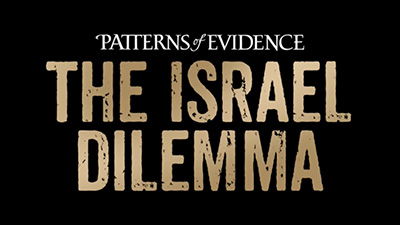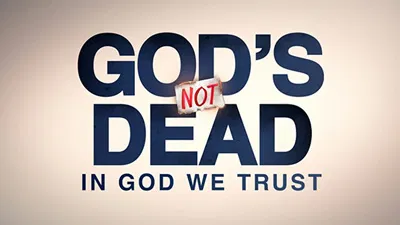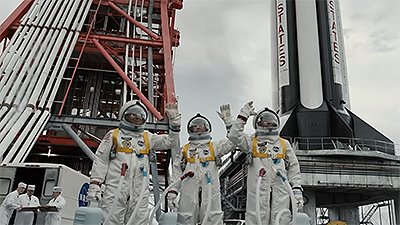Movie Review: The Creator
Big Questions Need Big Answers
Before I headed to the theater to watch The Creator, I briefly explained the trailer to a friend: “It’s a movie about the world being at war with AI. But when one of the robots is a sentient child, the main character is in a moral dilemma over what to do with it.”
“I say kill the robot child and call it a day,” my friend said.
I laughed because it was a simple solution to a big problem. Surely, it couldn’t be that simple.
In a way, we were both right.
A Brief Synopsis
The Creator is a sci-fi film set in the year 2065 and depicts a world in which humans and AI robots coexist. After an AI-related nuclear event in San Francisco, the West stops development of AI and finds itself in conflict with New Asia (an amalgamation of East Asian countries). The protagonist, Joshua, is an undercover agent searching for the creator of a secret AI weapon called Alpha-O. Joshua finds the weapon, which happens to be an AI robotic child called Alphie, and finds himself unsure of which side he’s actually on.
The 2023 film The Creator is no blockbuster, but such is often the case of movies that invite us to ponder big questions. Big questions prompt big discussions and take up mental space, often drawing us into the abstract, metaphysical, or even spiritual. The Creator does just that.
Big Questions
1. Who Has the Right to Live?
One of the biggest questions The Creator asks is who has the right to live. Is it morally right, wrong, or even neutral to “kill the robot child and call it a day”?
The opening sequence shows a series of 1950s-style commercials advertising the wonders of AI robots. One ad said, “They’re more human than humans.” Another described them as civil servants who keep the peace.
Then the movie jumps to the year 2065 after the world has been totally changed by war with AI. Joshua is with his pregnant wife, Maya. He’s an undercover agent for the United States, looking for the creator, a human who is creating a secret AI weapon called Alpha-O. Because Maya was raised by sentient AI robots (called simulants) who were more kind to her than any human had been, she is sympathetic to them. When the West attacks their home, blowing Joshua’s cover, she is heartbroken and starts to leave him.
“They’re not real!” is Joshua’s cry as he implores her to reason. They don’t feel, he says. It’s just programming. When he kills one, he explains that the simulant is not “dead” but simply “off.” But to Maya, robots are just as real as (or even more real than) humans in all the ways that matter. The simulants are kind, caring, and self-sacrificing. Humans, in her mind, are barbaric.
The movie does a good job of portraying these simulants as good. I found myself far more upset when they were “offed” than when the barbaric humans were bombed by those same robots. After all, the simulants were the “good guys,” and good storytelling always moves audiences to root for the good.
Of course, being kind, caring, and self-sacrificing is not the measure a human life’s value. Human life has value because it is made in the image of God.
2. What Is My Image?
Joshua finds the secret AI weapon, Alphie, who has the likeness and personality of a five-year-old girl. The creator succeeded in making her the first simulant to grow from infancy like a human. Like any young child, Alphie asks big questions about life.
“If you aren’t a robot, how are you made?” she asks.
The camera then pans out over the Asian landscape and focuses on a family of monkeys as Joshua answers, “My parents made me,” an obvious allusion to ape-to-man evolution.
Evolution isn’t just implied throughout the movie—it is directly discussed. Joshua’s military superior, the ruthless Colonel Howell, justifies the elimination of AI by appealing to evolution. She mentions neanderthals. “There was only one problem,” she said. “There was a species smarter and meaner than them.” The biggest, meanest aggressors survive in the evolution story. In Howell’s perspective, simulants had to be eliminated for fear they might make humans go extinct.
Of course, simulants cannot biologically reproduce—a necessary function in evolution. Simulants were created by humans and look like humans only because humans gave them their human appearance. That issue asks us to consider the nature of image bearing as posed in The Creator: humans bear the likeness of apes, and simulants bear the likeness of humans. Throughout the movie, ads on city billboards encourage humans to “share their likeness” with new simulants. Humans can donate their appearance to AI, allowing many simulants to share the face of a single human.
Simulants were created by humans who bestowed their likeness on them. Going beyond appearance, we learn that Alphie is kind, loving, and self-sacrificing because the creator was also kind, loving, and self-sacrificing.
Without a biblical worldview, this idea gets muddy. Did my parents “make” me? Am I an embodiment of the traits—good or bad—of my parents? Did they give me their likeness? In whose image am I made? Only God’s Word tells us in whose image we are made—the image of God. While we don’t know all that being made in God’s image entails, we do know that it sets humans apart from all other living and nonliving things, including robots. God created humans in his own image. Humans create robots in their own image.
So what does that mean for Alphie, a simulant terrified of being “off”?
3. Is It Okay to Kill the Robot Girl and Call It a Day?
While it is always wrong to murder a human, what does the Bible say about killing nonhuman life? Is it a sin to let my houseplants die, knock off my dog if I just don’t feel like caring for him anymore, or smash my smartphone to bits when I’m angry? Is it okay to kill the robot girl?
While there is no biblical law against “offing” nonhuman life, there are many principles to guide our hearts in this area. As stewards of creation, we should tend to our houseplants, yards, and community spaces. We should care for the lives of our beasts, and we should be grateful for the gifts that God has blessed us with, including electronics.
Our capacity and lust for killing and destruction is indicative of our souls, regardless of the object of our furor. This isn’t a pacifist cry. There is a time for war. And there is a time for culling of creatures who have ventured outside their boundaries or exceeded healthy population numbers—that’s part of stewardship in a fallen world. But to love killing, especially with violence or unwarranted vengeance and hatred as our motivation, is never justifiable.
4. Why Did the Creator Create?
Joshua eventually learns that the creator created Alphie to be a savior. She would free her people from slavery to humans, end all wars, and bring the two “species” (i.e., sentients and humans) into peaceful coexistence.
At one point, Joshua tells Alphie that someone he loves is “in heaven,” which he describes as a place in the sky. Alphie asks him if he’s going there, and he replies no, because to get there, you have to be a good person—and he admits that he is not good.
Alphie replies, “We are the same. You cannot go to heaven because you are not good, and I am not a person.”
*Spoiler alert* By the end of the movie, Joshua recognizes the “immorality” of humans who brutally hunt and destroy the simulants and helps Alphie in her mission to save her kind. He sacrifices himself to save Alphie, and as she cries for him, he explains that he’s going to heaven. In the movie’s moral economy, Alphie has saved him from his badness by showing him what it means to be good, granting him access to heaven.
The terms creator and savior in The Creator are obvious biblical tropes but are in no way biblically sound. The one true Creator God did not create the Savior, Jesus Christ. Jesus, God the Son, is one with God the Father and God the Holy Spirit. They are eternal, and they set the plan of redemption from the beginning before sin entered the world. Our Savior does indeed free us from the slavery of sin, but he does not help us become good people who deserve heaven. He gives us his righteousness and redeems us with his blood. Unlike the programmed AI robot Alphie, our Savior became flesh—a real human, not a simulant—and chose to willingly live among mankind and die in the place of sinners. Then he rose from the grave, victorious over sin and death.
Closing Thoughts
Like any fictional movie that invites us to ask big questions, The Creator may not be all that it appears. The movie might “ask” us how to live morally in a world quickly confronting life with AI, but it isn’t a stretch to see how it might also be trying to ask us the “right way” to live in a world with people we don’t agree with or view with less humanity because of their skin color, ethnicity, or culture with only the “moral” foundation of evolution. Yet only the biblical answer is consistent and clear: “love your neighbor as yourself” (Mark 12:31).
I appreciate anything that invites big questions, and for that reason, I can appreciate The Creator, even if it has some obvious flaws. Without a biblical foundation, The Creator offers no framework to answer its big questions, leaving viewers bereft of any real truth and meaning. But as a Christian, those questions and parallels draw me to God’s Word and into prayerful communion with him, the source of big answers.

Answers in Genesis is an apologetics ministry, dedicated to helping Christians defend their faith and proclaim the good news of Jesus Christ.
- Customer Service 800.778.3390
- Available Monday–Friday | 9 AM–5 PM ET
- © 2026 Answers in Genesis




